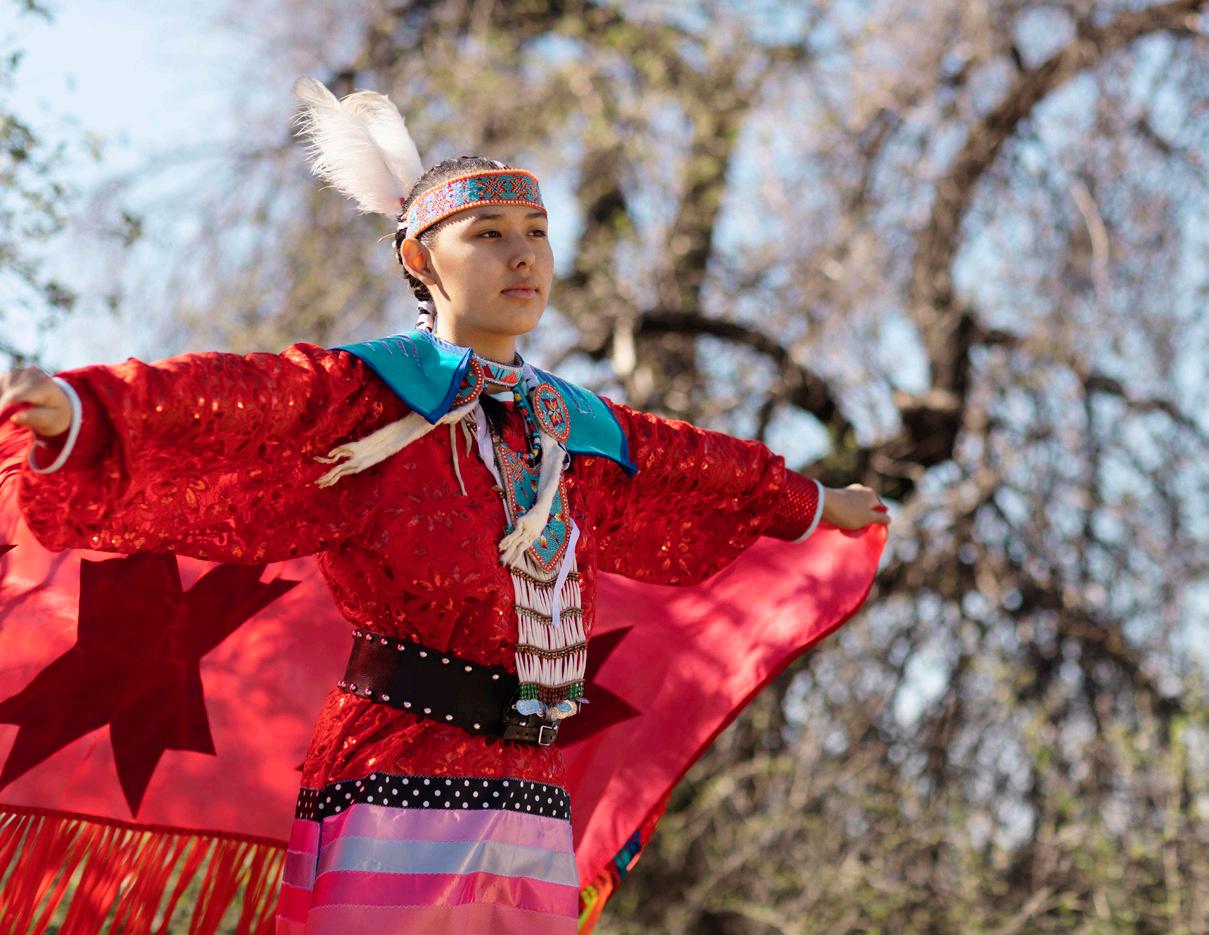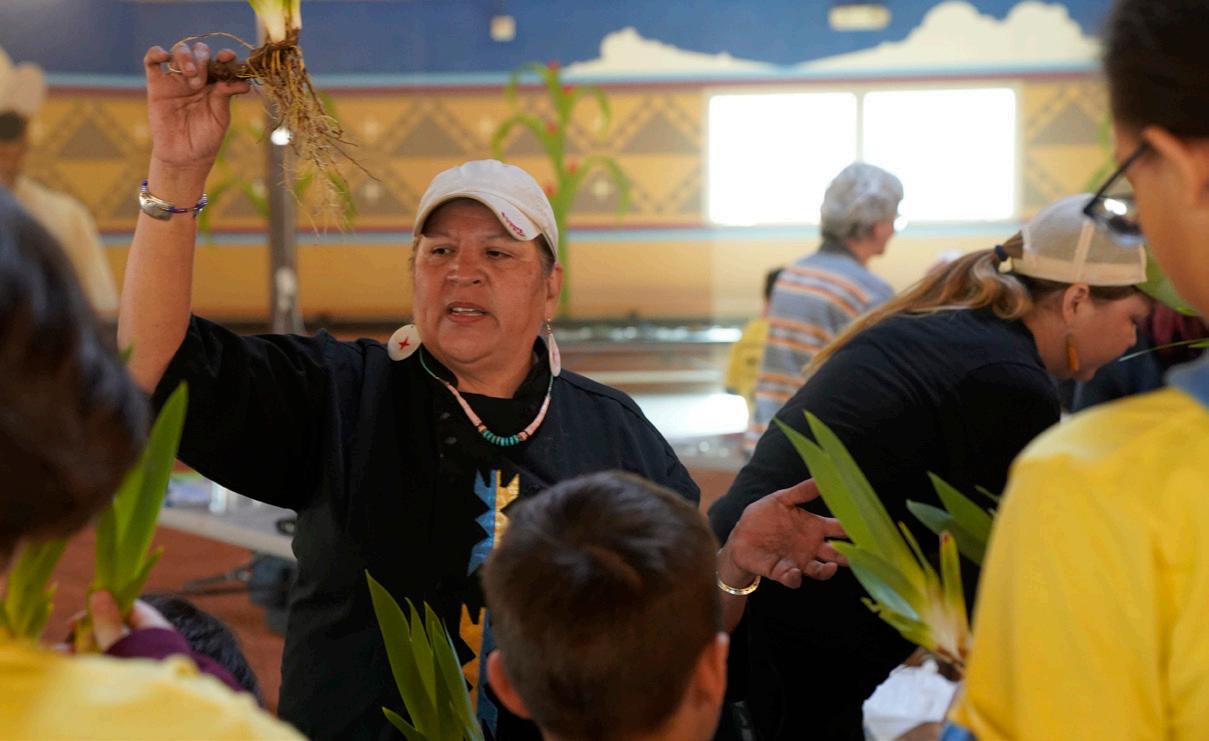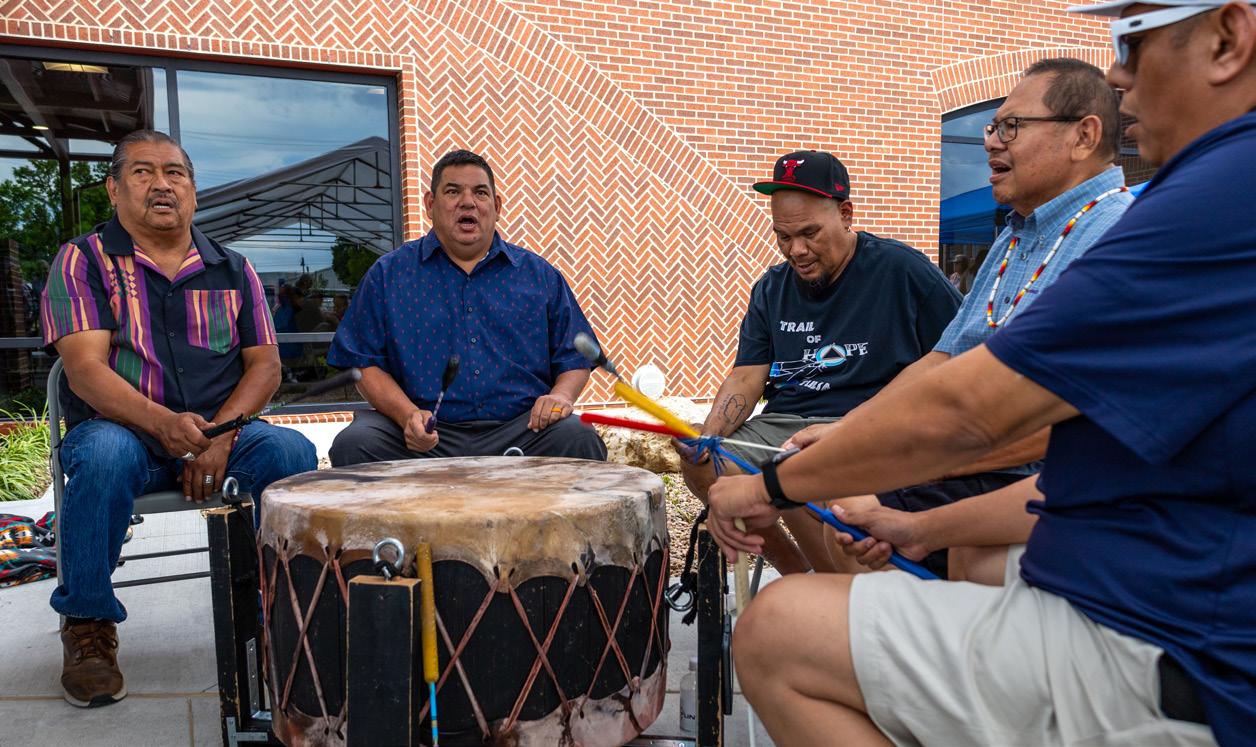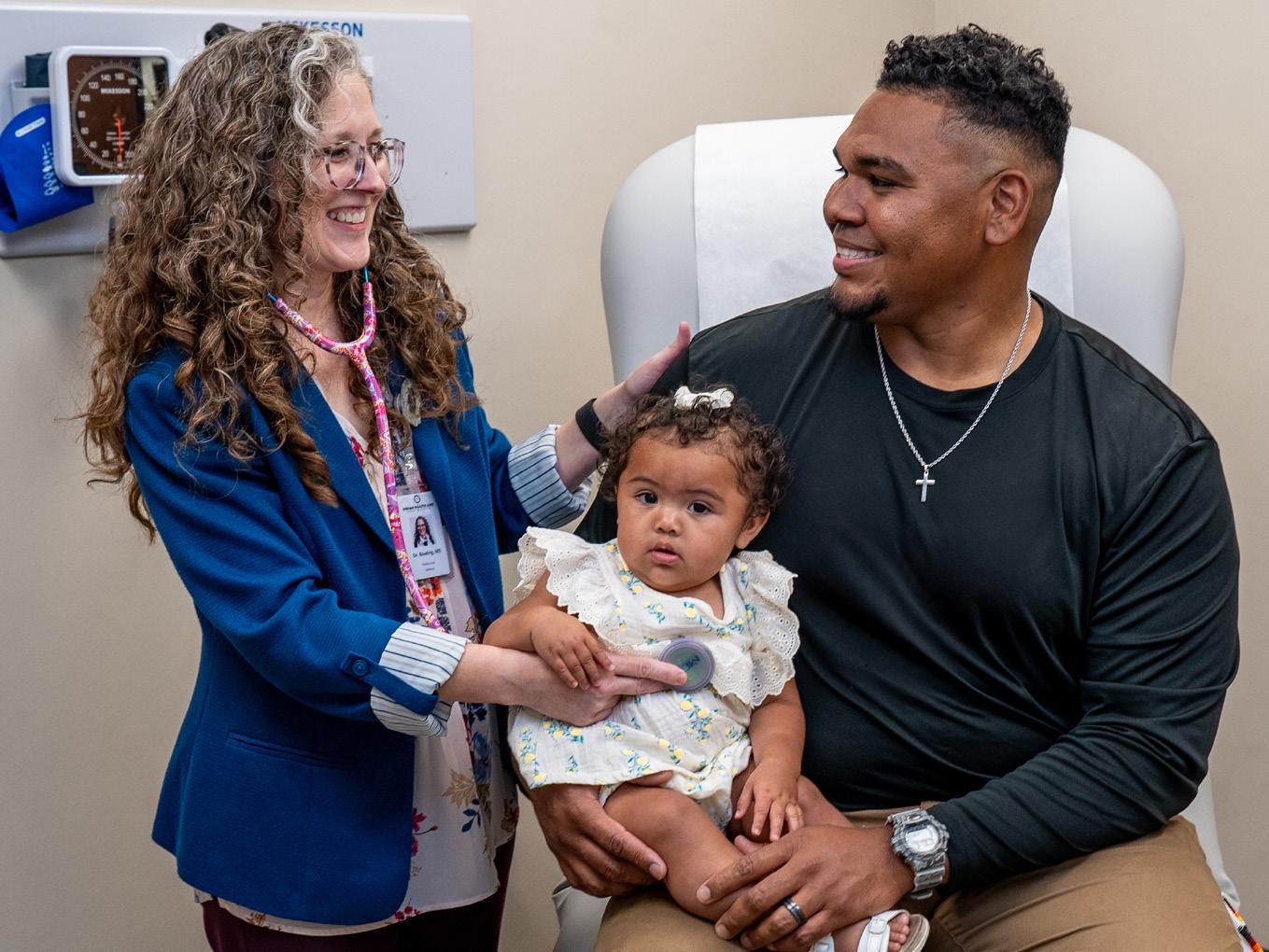2025 CULTURAL GUIDE BOOKLET RESILIENCE THROUGH TRADITION CULTURAL DAY


By Cherokee Nation

Welcome!
This guide will help you and your family enjoy and respect Native American cultural events. Whether you are deeply connected to Native traditions or just beginning to learn, these tips will help you take part with kindness, respect, and curiosity.
Native Nations in Oklahoma
• Oklahoma is home to 39 tribal nations, representing a wide range of languages, traditions, and leaders.
• Native Americans are the first peoples of this land, and their cultures are not only history, they are vibrant and alive today.
• Families may find themselves at different places in their cultural journey. Some continue traditions passed down for generations, while others are reconnecting after time away. Both are important, and both are welcomed at cultural gatherings.
• Many tribes in Oklahoma were originally removed from their homelands during the Trail of Tears and other forced relocations, making Oklahoma a gathering place for Native nations from across the country.
Did you know? Oklahoma has one of the largest Native American populations in the United States. Many families here represent more than one tribal heritage.



Language, Regalia, and Traditions
• Over 30 Native languages are still spoken in Oklahoma today. If you hear them, listen carefully, it is a gift and a sign of cultural strength.
• Regalia (special clothing worn during dances or ceremonies) is not a costume. Every piece often has meaning, representing family, history, or spirituality.
• Stories, songs, and dances may be hundreds of years old. They connect today’s families to ancestors and future generations. Treat these traditions with the same respect you would give a treasured heirloom.


Honoring Resilience
• Native communities have faced great challenges, such as removal from homelands, broken treaties, and boarding schools where children were punished for speaking their language.
• Despite these hardships, tribes held tightly to their stories, songs, ceremonies, and sense of community.
• Cultural days and community gatherings celebrate that strength. They remind us that resilience means carrying traditions forward and adapting them so they continue to thrive.
Tip for kids: When you see dancing, singing, or storytelling, remember these are not just performances, they are living examples of resilience.


Tribal Sovereignty
• Tribes have their own governments, leaders, and laws.
• Sovereignty is not just history, it continues today. Attending a cultural event means stepping into a space shaped by tribal nations.
• Respecting sovereignty is part of respecting Native identity. It acknowledges that tribes are not only cultural groups but also political nations with deep ties to their traditions.
How Families Can Show Respect
When attending a cultural event, think of yourself as a guest. Here are some ways to show respect:
• Listen first: Stay quiet and attentive during songs, dances, and drumming. These moments are sacred, not just entertainment.
• Ask before you act: Some dances or activities are open to all, but others are for certain groups. Asking shows respect.
• Photos: Always look for signs or ask before taking pictures. Some regalia, dances, or ceremonies are private and not meant to be photographed.
• Respect elders: Elders hold wisdom and experience. Offer them seats, let them go first in line, and listen carefully when they speak.
• Participate with care: If invited to dance or join in, do so with gratitude.

Communication and Participation
• Many Native cultures value listening more than speaking. Silence can be a sign of respect.
• Nonverbal communication is also important. A nod, smile, or patient listening can say more than words.
• Learning about traditions takes time, and curiosity is encouraged when paired with respect.
• Sometimes pauses in conversations are chances to reflect before responding.
• Even small gestures, like showing patience, giving space, or quietly observing, demonstrate that you respect the community and the moment.
Tip for families: Encourage children to watch closely before joining in, and remind them that waiting their turn is a form of respect.
Food and Sharing
• Food often plays an important role in community gatherings. Trying Native foods is a way to join in and learn more about culture.
• If food is blessed or offered in a special way, pause and show gratitude. For many tribes, sharing food means sharing community.

Why It Matters
By taking time to listen, learn, and respect traditions, families help keep Native cultures strong. Cultural events are not just about looking back, they are about carrying traditions forward so that children today, and their children tomorrow, continue to know who they are and where they come from.
Quick Reminders for Kids
• Be curious and kind, it’s okay to ask respectful questions.
• Say thank you if someone shares with you.
• Respect personal space, regalia, and sacred items, never touch without permission.

Remember: you are helping celebrate traditions that go back for generations.







